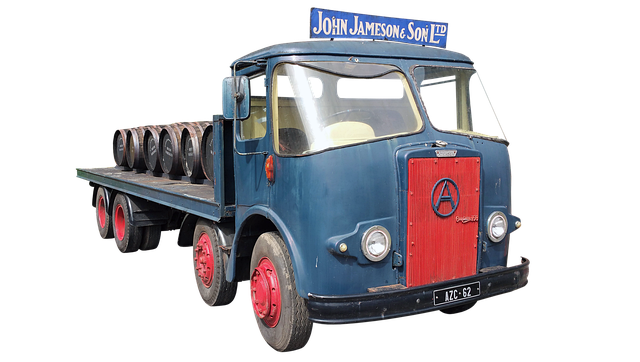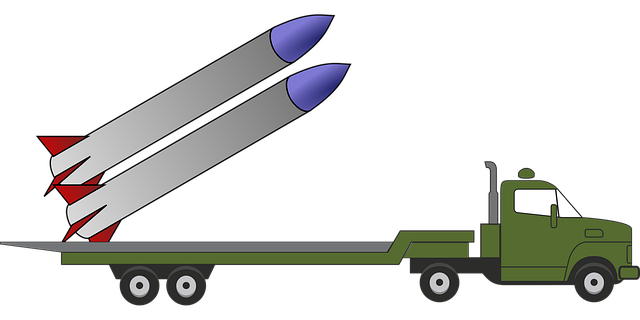Heavy haul trucking relies on specialized Select Heavy Duty Trucks for transporting oversized loads. Companies offer leasing and purchase options to suit budgets. Advanced navigational technology optimizes routes and safety. Clients request quotes, and specialists assess needs, selecting trucks with safety features for secure cargo transport. Efficient logistics involve route planning, driver training, and GPS tracking. Smooth operations, on-time deliveries, and hazard reduction are key benefits of this meticulous approach using Select Heavy Duty Trucks.
“Discover the world of heavy haul trucking services—a specialized transport solution for exceptional cargo. This comprehensive guide explores the ins and outs of this critical industry, from understanding the unique demands to navigating the complex process. We delve into various heavy-duty trucks, their applications, and safety considerations.
Learn how to select the right vehicles for specific jobs, ensuring efficient and secure deliveries. Whether you’re a logistics manager or an enthusiast, this article offers valuable insights into the art and science of heavy haul trucking.”
- Understanding Heavy Haul Trucking Services
- Types of Heavy Duty Trucks and Their Applications
- The Process: From Quote to Delivery
- Safety and Logistics in Heavy Haul Operations
Understanding Heavy Haul Trucking Services

Heavy haul trucking services are designed to transport oversized or unusually heavy loads that conventional trucks cannot handle. This specialized service requires robust and powerful vehicles equipped with advanced features for safety and stability. Selecting heavy-duty trucks specifically tailored for such tasks is paramount. These trucks, often featuring powerful diesel engines, are engineered to withstand the rigorous demands of hauling large, bulky items.
When choosing a heavy haul trucking company, consider their fleet of select heavy duty trucks, which can include various configurations suitable for diverse needs. Many providers offer lease-to-own programs for big rigs, enabling businesses to acquire these specialized vehicles over time. Such options cater to different budgets and requirements, ensuring that companies can access the necessary equipment without a significant upfront investment.
Types of Heavy Duty Trucks and Their Applications

The world of heavy haul trucking relies on robust and specialized vehicles designed to tackle formidable cargo. When it comes to selecting the right heavy-duty truck, options abound, each tailored for specific applications. From flatbed trucks capable of carrying oversized loads to tank trucks equipped with advanced fluid transportation systems, there’s a tough commercial truck option for every challenging task. These trucks are engineered to withstand extreme conditions, ensuring they can handle the most demanding logistics operations.
One key aspect that sets these vehicles apart is their navigation capabilities. With advancements in technology, smart navigation systems have become integral to heavy-duty driving, offering efficient routes and real-time updates. This not only optimizes delivery times but also plays a crucial role in managing fuel costs and maintaining driver safety. Whether navigating through urban centers or traversing rugged terrain, these features ensure that commercial truck insurance quotes align with the vehicles’ capabilities, making every journey as smooth and secure as possible.
The Process: From Quote to Delivery

The process of heavy haul trucking begins with a client’s request for a quote. Trucking companies that offer this specialized service carefully assess the job requirements, including the size and weight of the cargo, route conditions, and any special handling needs. They then select the most suitable heavy-duty trucks from their fleet, which are equipped to handle these demanding tasks. These vehicles often boast advanced safety features in trucks, ensuring a secure transport process.
Once a quote is agreed upon, load planning tools for haulers come into play. Trucking experts create precise plans, considering every detail of the journey and cargo placement. This meticulous approach ensures efficient cargo management solutions, minimizing potential risks and maximizing payload capacities. From there, the chosen trucks are prepared, loaded, and ready to deliver, completing the seamless process from quote to successful cargo arrival.
Safety and Logistics in Heavy Haul Operations

Safety is paramount in the world of heavy haul trucking services. When selecting heavy duty trucks, companies must prioritize features that enhance driver visibility, such as advanced lighting systems and wide field-of-view mirrors. Regular maintenance and inspection routines are crucial to ensure these behemoth vehicles operate reliably and safely, with an emphasis on critical components like brakes, tires, and suspension systems. Proper training for drivers is equally vital; they must possess the skills to handle the unique challenges of transporting oversized or unusual cargo, including securing loads securely to prevent shifting during transit.
Logistics play a significant role in successful heavy haul operations. Efficient route planning considers not just the physical dimensions and weight restrictions of the selected best value commercial trucks but also weather conditions, road construction, and local regulations. Utilizing tough commercial truck options with robust engines and advanced GPS tracking systems allows for real-time monitoring of both vehicles and cargo, optimizing delivery times and minimizing risks associated with unexpected delays. This meticulous approach ensures that operations run smoothly, reducing potential hazards and delivering projects on time, every time.
Heavy haul trucking services play a vital role in transporting oversized or unconventional loads, ensuring efficient and safe movement across various industries. By understanding the unique aspects of these operations, including the selection of appropriate heavy-duty trucks tailored to specific needs, companies can navigate the process from quote to delivery with confidence. Safety and logistics remain paramount, requiring meticulous planning and adherence to regulations to avoid disruptions and ensure successful projects.
